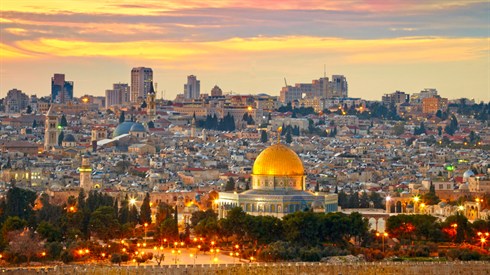2034
It is obvious that to all who have some knowledge of Judaism and its laws and traditions that Shabat trumps almost all other commandments of the Torah except for preserving human life itself. On Shabat there is no Rosh Hashana shofar, no Succot etrog and lulav and no Purim megilla reading. That is because Shabat itself is the primary miracle and ritual in Judaism’s view of life and creation. Shabat testifies to the existence of a God Who created the universe and sustains all life on our otherwise insignificant planet. Shabat is the Jew’s connection to eternity and infinity. Shabat therefore makes all miracles and rituals pale before it. But Shabat is a hidden miracle, a regular weekly occurrence thus taking on the form of being natural rather than miraculous. But as only Shabat observers can testify to, Shabat is truly a miracle. How else can one describe and characterize the ability to leave the mendacity and mundaneness of daily existence for a day and feel transformed and refreshed, cleansed and strengthened in body and soul? Where else can one escape the burdens of life for a short period of time and tend to one’s own inner self if not on Shabat? Shabat therefore becomes the miracle of all miracles, the wonder of original creation and the continuing and ongoing extraordinariness of human striving for the infinite and the holy. We need no reminders of ritual and miracles when we experience and observe Shabat itself.
Purim is as we all know a hidden miracle. God’s name does not appear even once in the entire megillah reading. God orchestrates, so to speak, the whole plot and manipulates its characters to eventually do His will but He is hidden in the entire unfolding drama. The deliverance of the Jews in ancient Persia from the murderer Haman is not accomplished by splitting waters or having manna descend from heaven. It is not as dramatic as Daniel in the lion’s den nor Elijah’s triumph over the priests of the Baal. It is almost a regular story of political intrigue and unreasoning human hatred, of scapegoating and victimhood, much as we unfortunately experience regularly in our own times and world. And yet the entire structure of the Purim study begs for the recognition of its miraculous quality throughout. Purim is like Shabat therefore in its subliminal message of God’s omnipresence in human affairs. It is therefore most fitting that Shabat should carry the banner of the prayer regarding miracles on its holy day. Shabat is the ultimate representative of the hidden miracle that constantly dominates our lives and fortunes. So, in a philosophical way, Shabat itself is also included in the prayer regarding miracles that we recite on the Shabat of Purim here in Jerusalem. Shabat, Purim and Jerusalem as well are the miracles we celebrate here this holy Sabbath day.
When the Prohibitions of Eating and Benefiting from Chametz Begin
Chapter Three-Part Three
Rabbi Eliezer Melamed | 5775
The Path to Purity
Parshat Parah
Rabbi Zalman Baruch Melamed
The Principles of Hagalat Kelim
Chapter Ten-Part One
Rabbi Eliezer Melamed | 5775





